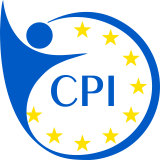The European Court of Human Rights is considered to be the most effective regional international human rights court. As Pope Francis stated, it is ‘Europe’s conscience’ in respect of human rights. Applying and interpreting the provisions of the European Convention on Human Rights in specific cases, the Court has developed a body of comprehensive case-law, making a significant contribution to international human rights law and establishing higher standards for the protection of fundamental human rights and freedoms throughout Europe.
Since its establishment, the Court has examined nearly 800,000 applications and has delivered more than 20,000 judgments finding at least one violation of rights and freedoms guaranteed by the Convention and its protocols.
From its inception, the Centre has been representing individuals, groups of individuals, and entities whose rights and freedoms have been infringed by government bodies and other public authorities. The Centre’s law specialists have extensive experience in drafting, lodging and litigating complaints on behalf of human rights victims with international and national courts.
The Centre has represented hundreds of human rights victims before the European Court of Human Rights. The legal experts of the Centre have won nearly 500 cases before the European Court of Human Rights and more than 500 are pending before the Strasbourg Court. Of all cases resulting in judgments against Russia, some 20-30% per year are cases brought and litigated by the Centre. Its lawyers provide consultations in pre-application stage, lodge application forms on behalf of human rights victims, draft and submit memoranda in post-communication phases, and present oral arguments at hearings before the Court.
The Centre’s lawyers help human rights victims to challenge human rights abuses in many areas, including: right to life; right to liberty and security; right to be free from torture; right to a fair trial; right to private and family life; freedom of expression; freedom of assembly and association; freedom of thought, conscience and religion; right to an effective remedy; right to property; right to free elections; and right to education.
To maximize the admissibility and persuasiveness of an application to the European Court of Human Rights, it is highly recommended to contact the Centre from the very outset of proceedings before the national authorities.
While we make our submissions in the Court’s official languages, English or French, we are able to communicate with applicants and review documents in Russian, Armenian and Ukrainian languages. To request legal representation, kindly fill out the online inquiry form, inserting the title “Representation”, and the Centre’s legal experts will respond if the request is within the scope of our mission and activities.
